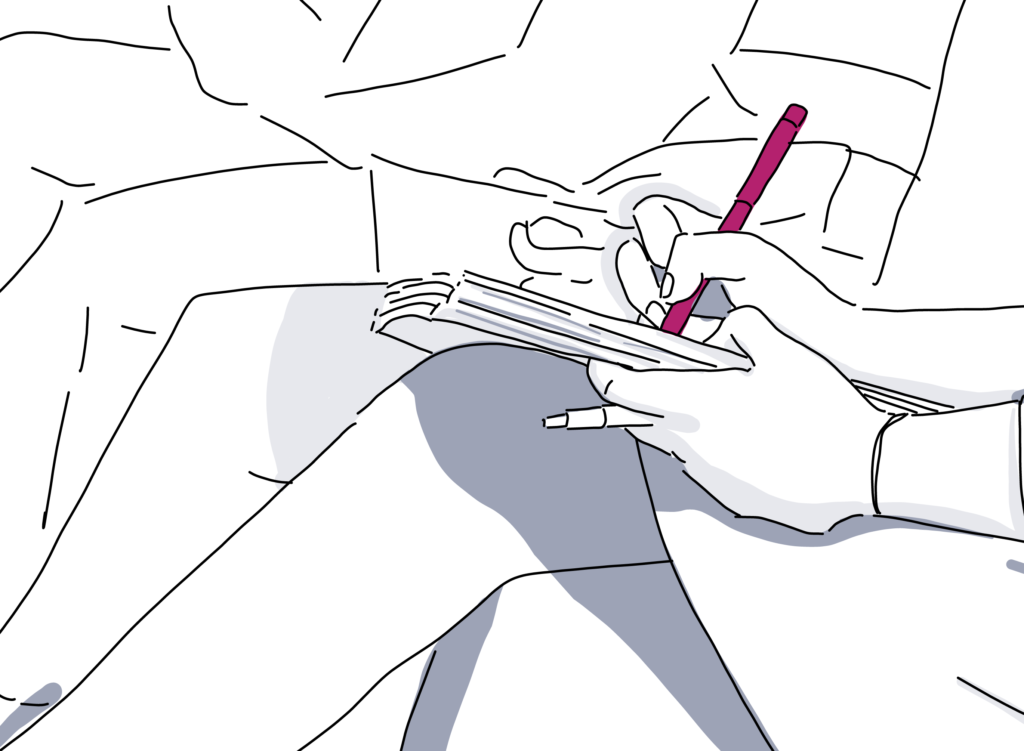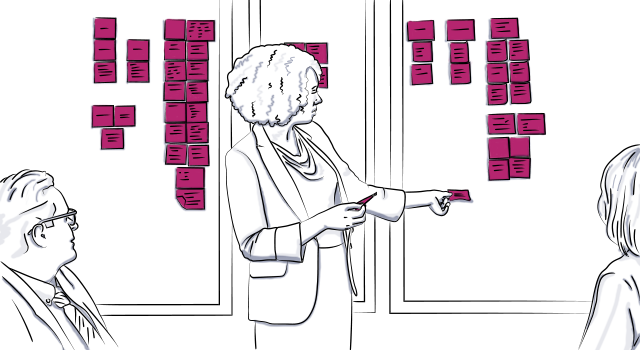
17 Things to Keep in Mind Before Hiring Event Staff
When you prepare for an event, you can’t overlook the crucial detail of who will be staffing your event. The staff for an event affects the entire experience. But finding the best staff isn’t as simple as you might imagine.
So before you hire staff for your next event, take a look at these key things to keep top of mind.
Here Are the Keys to Hiring Effective Event Staff

1. Understand the regulations with hiring event staff
Disclaimer: we’re not lawyers. But you have to realize that when hiring people ” even for just one event ” you need to abide by certain rules and regulations.
These rules and regulations vary based on all kinds of details, like your location and if you plan to work with an agency or hire individuals. There are so many variations in staffing that we can’t walk through them all.
Instead, we want to get you thinking about how you might need to handle these regulations:
- If you plan on hiring individuals, make sure you sign a contract with each person.
- If you’re planning a destination event, get familiar with local rules and regulations that pertain to hiring event staff.
- Consider signing a contract with an event staffing company. They can help you understand the regulations and rules better.
With event staffing, you want to avoid any situations where you could get yourself into legal hot water. A signed contract is crucial if you want to stay legal during the event planning process.
Consult your lawyer if you’re unsure of any rules. Handling the regulation side of hiring event staff early gives yourself and your planning team peace of mind. To learn more about event legal issues and requirements head here.
2. Know your event budget
Your budget will determine what type of staff and how many staff members you can have at your event
Talk to prospective staffing agencies to get an idea of how staff costs are calculated to figure out a staffing budget. For large-scale, VIP, or black-tie events, you’ll need to dedicate a big portion of your budget to hire staff for the event.
You’ll need a budget that is large enough to cover all costs and extra costs that arise. As with any event, there are always unforeseen event costs. Make sure to include some wiggle room to cover things like overtime, in case you need it. A flexible budget makes sure that you can deliver on the event, even if something goes wrong.
[Tweet “When budgeting for event staff, keep in mind the staff numbers and allow for unforeseen staff costs.”]

3. Understand the client’s event expectations
Even if you have a small event budget, hiring event staff is still a possibility. When you’re working with a smaller budget, focus on hiring a staff that’s more qualified and that meets your client’s expectations.
Consider what you’ll ask the staff member to do. Have they worked events like yours? Do they have the certifications that are required to do the job?
Depending on what you expect the event staff to do, your requests could drive up the bill. Clarify with your client on what they expect and find the staff to match.

4. Ask for recommendations from colleagues
One of the simplest ways to find staff for an event is asking for recommendations. Your peers in the industry can be a resource when you need advice. This is especially true if your colleagues and peers have already sourced event staff in the past. They can share with you the hurdles they overcame and can help you throughout the process.
If you plan to
5. Thoroughly interview and vet candidates
Don’t be stingy in your event staff search. Talk to multiple agencies and potential staff members. The more candidates you meet, the more informed decision you can make
If you plan on only hiring individuals, set clear expectations. By outlining specific requirements, you can better qualify and vet the candidates coming through the door
By being specific, you can ensure that you’re interviewing event staff that truly meet the needs of your event.
Plus, Here’s How to Work Best with Event Staff
Pulling off a successful event is a team effort “ it’s impossible to do it all alone. By surrounding yourself with a team of professionals that have demonstrated their knowledge and expertise, you are helping to ensure the success of your event. Let’s take a look at what it takes to work well with the team you’ve pulled together.

6. Know your key players and let them know what they’re responsible for at the event.
Any kind of event is made up of several teams of people, led by those known as key players. The planner/director is the head, as they are the person who is running the show from start to finish. From there, the production team is responsible for putting everything together on the day of the event- from décor to design, they are the wheels that keep everything moving. The head of catering is in charge of food and drink for all guests. Lastly, a logistics manager runs the team of lighting techs, transportation coordinators, security guards, and the like.
7. Stay connected with your event staff throughout the event.
The importance of good communication when planning an event cannot be stressed enough. People will be spread out all through the event, so having a system set in place that everyone is familiar and comfortable with is key. Our team relies heavily on Skype and phone calls to reach one another, since we find that emails and SMS messages can be easily forgotten or misconstrued. However, every team works differently and you have to figure out what works best for you.
Communication should be happening often during the months of planning “ once a week is a good place to start. In the final weeks before the event, it should become more frequent, even daily. This keeps everyone up-to-date on any changes and holds each person accountable for their contribution to the final event.

8. Hold a staff meeting at the event.
[Tweet “Start by holding a team meeting with everyone from the caterer to the setup crew”]
Lights, camera, action! Depending on the size and complexity of the event, setup should have begun at least 24 hours before the event’s listed start time, if not more. With everyone in place, start by holding a team meeting with everyone– from the caterer to the setup crew to the restroom staff, everyone needs to be involved. Discuss final details of the event and ensure everyone is set to go and knows what they are doing. Add a pep talk as well to get everyone excited for the day(s) ahead. Set your communication plan in motion and be ready for anything that may need immediate attention, and trust that everyone is doing their job.
9. After the event do a wrap up with your event staff.
Once the event is over (and a success!), it’s always a good idea to have a postmortem meeting with the key players that were involved. Discuss the things that you thought went smoothly, as well as things that you thought could have gone better. Make sure to get their feedback as well so you have everyone’s perspective. This is a good rule of thumb for any event as it identifies ways to improve in the future, as well as highlighting your strengths.
These are just a few of the key tips you need to know to put together your dream event team. If you take nothing else away from this, remember that the most important part of a successful event comes down to good communication- it can’t be reiterated enough.
What is top of mind for you when hiring event staff? Send us a tweet at @socialtables!
Plus, Decide If You Need an Event Planner with Key Questions to Ask Before Hiring an Event Planner
Business owners”large and small, for-profit or charitable”often find themselves asking an important question about a major function, kickoff or product launch: Should we hire an event planner for this?
Many try to do the mental math and hesitate based on a lack of knowledge and experience in working with professional event planners. However, that calculus may off if the appropriate framework isn’t considered to make the best decision for each event or activity.
Here’s a list of ten (10) ideas to help decision-makers feel more comfortable about their process to hire an event planner. It may be the most solid course of action for your next big function.

10. How important is the event?
Not all events are created equal. Depending on the crowd size, complexity and importance of information shared, not every event requires an event planner. A morning coffee, or a small event often can be pulled off just as successfully by your own team. Internal events can also often be done on the fly with internal personnel if they are a regular course of business.
However, you should probably hire an event planner if:
- The event includes major stakeholders that have significant financial impact to the business
- The event is designed to showcase a “new” you”brand, product, team, way of doing business, etc.
- The event is internal or celebratory and will not be as enjoyable for all company members if part of them have to plan the party and not take part it donning their party hats
- The event is complex and calls for expertise you don’t have internally to do well.
11. How stretched is the team right now?
One other critical factor in event success is team capacity. Capacity to plan, organize, invite, lead vendors and caterers, handle internal and external event questions and actually attend and clean up after the event. If you have a marketing, development or internal team that is already stretched to the max, having a few professional event planners in your hip pocket is a must.
The team should feel as though they are allowed to hire an event planner should this need arise, and have an established practice of doing so, and the budget to manage this option successfully. If it’s a team’s first time in trying to find an event planner, many digital tools exist to aid businesses and individuals in major cities.
12. What do key team members need to do during the event?
If someone important to the event, can’t serve their primary business function because they are also serving as “party planner” for the day or evening, then you should hire a professional instead.
As a business owner you might need to be ready to receive your guests, partners, clients and investors. Meanwhile, a team of professionals can make sure your room is buzzing, and that your guests are well fed and entertained and keep track of who is attending. If you’re in any doubt on this one or the tasks would be “iffy” at best, hire an event planner.
13. What is the event worth to you?
There’s the financial worth of an event, and then there’s the brand worth. If either of these is on the pricey side and you don’t have room to waste money, time or face, hire an event planner.
Now, we know what you’re thinking on this one. “Event planners cost money, so if my event is already expensive, why would I want to make it even more so?”
Here’s where the logic is flawed. Yes, event planners do cost money, but having a botched event is far more costly than an event planner’s fee. Also, don’t forget that if the event is a larger-scale one, event planners may be able to save you some dollars on rentals, vendors and other contracted items. They may also have their own personal stock of decor for rentals, do their own floral or already have a great event tools and apps to use. Do not underestimate the power of a good event planner.
14. What reputation are you trying to build or maintain?
Your reputation is important. What values your business holds dear, the prestige your firm brings to the table and the legacy your owners or senior executives may be leaving in your community are all critical parts of your business operations year after year. If a reputation of success is important to your business or clients, wouldn’t it make sense to hire an event planner to help protect that?
Now, don’t get us wrong. The annual company picnic you’ve been doing for 25 years and have down pat with the location, date, caterers, clowns and bounce house guy in place probably doesn’t leave much room for a planner to add remarkable value. However, if you also have swanky client dinners or an exclusive event or educational series you want to pull off, then give professionals some room to help you here. Even if you have an embedded event planning team on staff, sometimes external influence can add new ideas and spark to an existing event.

15. Do you have any experience doing what you’re attempting to do?
It may be the most exciting thing ever to throw a private concert with Sting or U2 or Taylor Swift for your top clients or conference goers. And, likely most of them would agree. (Yea. Fun. Concert. Music. Celebrity.) But, if you have absolutely no experience in hosting large-scale events, or concerts or conferences, you need to hire an event planner who does.
Clearly the skill sets for examples like these will vary and you’ll need to select someone who makes sense in each situation, but you can see pretty quickly that if you’re going to be way outside your team’s wheelhouse and if you’re going to drop some pretty big coin to bring the “wow,” the planning expertise is not the place you’re going to want to scrimp.
16. Has anyone in your area or field already done it better?
This one’s a tough one. Let’s say you happen to live in a city where new tech startups crop up every third Wednesday, so there are oodles of “launch parties” or similar functions. How do you stand out from the crowd?
If you’re unsure about your competitive set for attendee attention, or event history, you probably should hire an event planner. Here’s why: their network. While you and your team probably haven’t attended every major function in the past couple of years in the city, they probably have, or know people who put those events on and can pull from their work as to great ideas for inspiration, and other ideas to avoid.
17. What’s your unique value proposition?
Let’s face it. Getting and keeping someone’s attention is harder than it’s ever been in recent history. With more options at guests’ fingertips to learn new things on their own time (hello YouTube videos!), be entertained from the comfy confines of home with their PJ’s, slippers and a trusty mobile device (Hulu v. Netflix smack down) and a crowded plate of both professional and personal obligations, your event has to have a hook if you want people to show up.
You need to know in advance what your hook will be and prepare to promote it vigorously to your audience. Will it be:
- Continuing education credit for a trade group or industry?
- A fancy swag bag full of coveted items?
- A private concert?
- Access to a celebrity?
- Lunch from a local top chef?
If you’re unsure about the value you bring, and whether or not it’s unique enough or interesting enough to draw a crowd, it’s a good idea to hire an event planner. The experience and industry awareness they bring will help you see your event from the outside looking in, and make sure you reach the objectives you’re hoping to achieve with your event.
Now You’re Ready to Hire the Right Event Staff, Including Hiring an Event Planner!
Up next, discover the top 10 challenges facing event planners, and how to plan an event step by step.
More like this:
What You Need to Know About Working with an Event Staffing Agency
The Truth About Estimating Event Budgets

